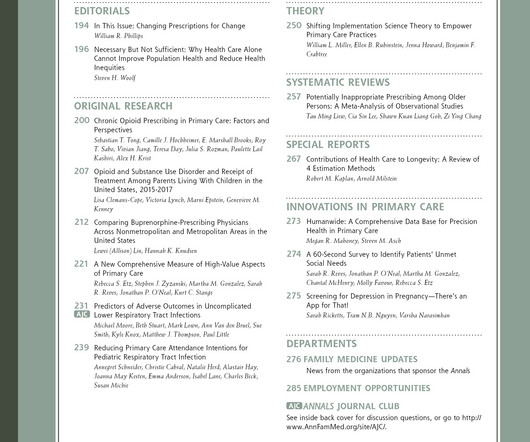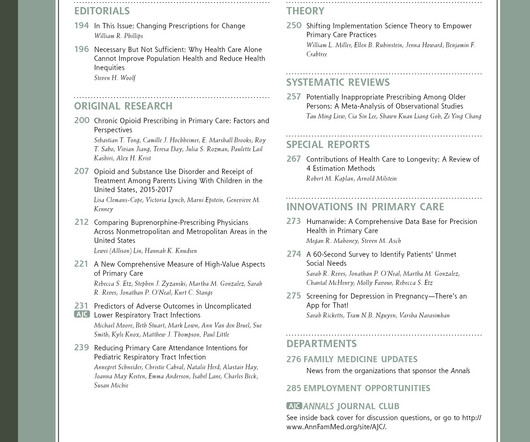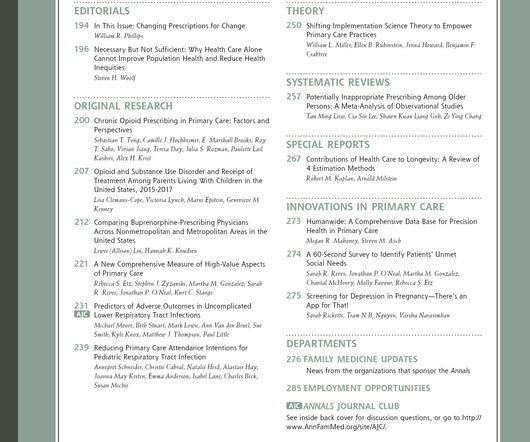Disaster preparedness, What we have learned from COVID 19 pandemic [COVID-19]
Annals of Family Medicine
NOVEMBER 20, 2024
COVID-19's impact surpasses previous pandemics, disrupting medical education by delaying clinical rotations and necessitating a rapid transition to telemedicine due to isolation and PPE shortages. 32% (n=11) reported patient satisfaction with telemedicine transitions.












Let's personalize your content